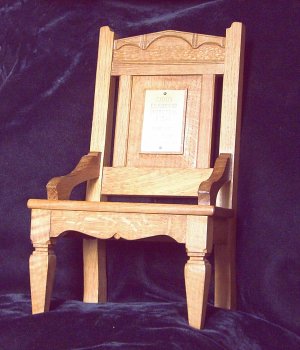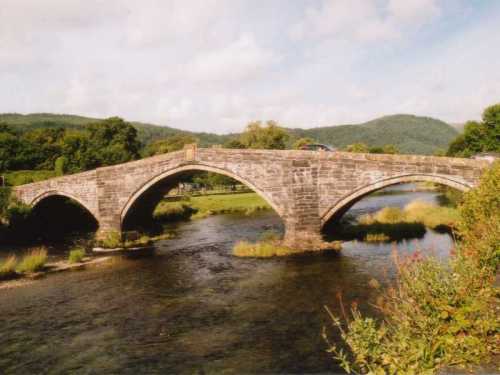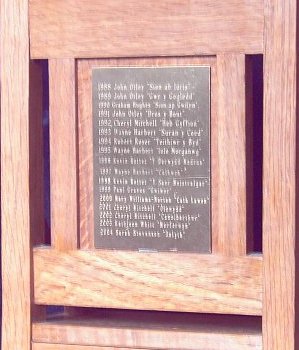Home
Frequently Answered Questions
- Details
- Written by: Dafydd Hughes
- Category: Lefelau - Levels
- Hits: 5250
Frequently Asked Questions
Cwrs Cymraeg (which simply means 'Welsh Course') emphasizes the spoken language, and provides instruction at various levels ranging from absolute a beginner to quite advanced. The teaching staff of Welsh-speaking instructors is brought from Wales and North America. All of them are experienced, trained teachers, and class sizes are small. There are approximately 5 hours of classroom language instruction per day, supplemented by further language-related activities in the afternoon. Evening events such as singing, Welsh folk dances, Welsh-language films, and a Noson Lawen, or talent night, provide additional opportunities to relax while still enjoying a Welsh-language atmosphere.
The Cymdeithas Madog Cwrs Cymraeg is held once every summer, each time in a different location. In the summer of 2003, for example, Cymdeithas Madog held Cwrs Cymraeg Y Llynnoedd Mawr on the campus of Carthage College in Kenosha, Wisconsin. In recent years, the course has gone to such varied places as Baltimore, Ottawa, Milwaukee, Buffalo, Atlanta, Berkeley and Burlington in Vermont. The next course, Cwrs Cymraeg 2024, will be held in Madison, Wisconsin from July 21st to July 28th.
![]() How can anyone learn an entire language in just a week?
How can anyone learn an entire language in just a week?
Cwrs Cymraeg teaches beginners the basics of the language, builds up their skills and confidence, and gets them off to a strong start. It gives intermediate and advanced learners a vigorous "shot in the arm" through a full week's immersion in the language, stretching their knowledge and raising them up to a higher level of language ability. Cwrs Cymraeg gives people the tools to learn on their own until the next course.
![]() Then what will I learn in a week at Cwrs Cymraeg?
Then what will I learn in a week at Cwrs Cymraeg?
Cwrs Cymraeg offers six different levels of classes to suit the needs of Welsh language students from those with no knowledge of the language up to those with a near-fluent grasp. What level is right for you?
![]() Why does Cwrs Cymraeg move around? Why doesn't it stay put?
Why does Cwrs Cymraeg move around? Why doesn't it stay put?
Cymdeithas Madog wants to give as many people as possible, in as many regions as possible, the chance to learn Welsh. Our course may last only a week, but its impact is long-lasting. Often, after Cymdeithas Madog moves on, the Welsh-learners in the area where the course was held start up a local class and continue studying. In this way, Cwrs Cymraeg blossoms into many Cyrsiau Cymraeg -- a multitude of Welsh courses
![]() Will Cwrs Cymraeg ever come to our neck of the woods?
Will Cwrs Cymraeg ever come to our neck of the woods?
That depends on people like you. Cymdeithas Madog comes to an area at the invitation of people from that area, usually from the local Welsh society. If you would like a Cwrs Cymraeg to be held in your area, talk to your local Welsh society or college about co-sponsoring a Welsh course with us. And, of course, talk to us about it. Cymdeithas Madog will be happy to hear your ideas and tell you what co-sponsoring a course would involve. Contact the Cymdeithas Madog, Venue Coordinator for more information about hosting Cwrs Cymraeg.
![]() How can I get more information about Cwrs Cymraeg?
How can I get more information about Cwrs Cymraeg?
For more information about the next Cwrs Cymraeg or any other Cymdeithas Madog matter, contact the the Cymdeithas Madog Secretary using our contact form.
![]() Are scholarships available to help defray the cost of attending Cwrs Cymraeg?
Are scholarships available to help defray the cost of attending Cwrs Cymraeg?
Yes! Due to the generosity of organizations such as the Welsh National Gymanfa Ganu Association and the National Welsh American Foundation, there are several scholarships available on a competitive basis. For information on how you might be eligible for a scholarship to Cwrs Cymraeg, visit our Scholarships page or contact the Cymdeithas Madog Scholarship Coordinator using our contact form.
![]() I have another question. Who can I contact to get an answer?
I have another question. Who can I contact to get an answer?
Cymdeithas Madog is always ready to try and help Welsh learners. If you have any questions about Cymdeithas Madog and how it might help you learn more about Cymraeg ("the Welsh language"), contact the Cymdeithas Madog secretary using our contact form.
Deunyddiau Ar Gyfer Dysgwyr
- Details
- Written by: Dafydd Hughes
- Category: Dysgwyr - For Learners
- Hits: 8988
History Of The CM Chair
- Details
- Written by: John Otley
- Category: Cymdeithas Madog Chair Competition
- Hits: 3319
History of the Cymdeithas Madog Chair
At each Cymdeithas Madog Cwrs Cymraeg since Cwrs Cymraeg Wisconsin in 1988, Cymdeithas Madog has held a competition in Welsh language literature composition among the students attending the cwrs. The topic and form (e.g., poetry, prose, etc) are announced before the cwrs in order to give participants in the upper levels time to compose their entries. The entries are of an extremely high standard. In order to preserve fairness, each competitor signs her/his entry with a "ffug enw" or "bardic name". The best entry each year that meets Cymdeithas Madog's high standards (as judged by the Cwrs tutors) is awarded the prized Cymdeithas Madog chair.

One of the most important and eagerly anticipated moments at every National Eisteddfod in Wales in the awarding of the chair to the winning bard in the strict meter competition. The chair is always crafted by a local artisan and reflects local tradition. The Cymdeithas Madog chair, commissioned by Mrs. Cassie Hughes of Bridgend, Wales, was carved by her brother, Huw Selwyn Owen. Mr. Owen, a master carver from North Wales (and a poet of distinction in his own right) was commissioned to make the official chair for the 1989 Llanrwst National Eisteddfod. The Cymdeithas Madog miniature chair was carved from the same wood, an oaken beam taken from a building dating from about 1400, as the Llanrwst National Eisteddfod chair. And like the Llanrwst chair, the back of the Cymdeithas Madog chair has a beautiful representation of the Llanrwst bridge.

Iif there is a worthy entry, this beautiful miniature chair is awarded to the winning bard in a formal chairing ceremony. The bard's name is engraved on a plaque on the back.

Chair 1988 - Delwyddau Wrth Feddwl Am Y Ffin
- Details
- Written by: John Otley
- Category: Cymdeithas Madog Chair Competition
- Hits: 2114
Y gerdd fuddugol yn nghystadleuaeth Gadair Cymdeithas Madog, Cwrs Cymraeg Wisconsin, 1988 gan Sion ab Idris (John Otley)
Delweddau Wrth Feddwl Am Y Ffin
Mi ddaeth fflam dros y ffin i newid ein byd.
Ond beth wyt ti'n gofio?
cornau a cheffylau?
concwerwyr a chestyll?
cyfreithiau a chadwyni?
Cofiwch y gogoniant drud.
Cofiwch y cyrff gwaedlyd oedd
yn pobi yn yr haul,
yn pydru yn y glaw.
Cofiwch:
Ar ôl yr ornest, aeth yr uchelwyr dewr a glân
i ffwrdd dros y ffin i gael bisged a phaned o de
efo'r Brenin yn Llundain bell.
I chwerthin ac i yfed fel gwr bonheddig da.
Dim ond y Werin oedd ar ôl i deimlo'r poen.
Ond beth wyt ti'n gofio?
Unwaith, mi eisteddes i ar y bryn ger y draffordd,
yn edrych ac yn aros i weld rhyfeddod.
Mi ddaeth y ferch hardda yn y byd
ar hyd i'r draffordd mewn M.G. gwyn.
A phan redes i ar ei hôl i ofyn ei henw,
doeddwn i ddim yn medru ei dal hi.
Mi yrrodd hi dros y ffin i Loegr draw, heb edrych yn ôl.
Mi benlinies i yn drist yn y mwg a'r baw,
heb anadl yn 'yn nghorff
Heb obaith.
Gwag.
Ond beth wyt ti'n gofio?
Unwaith, mi ddes i o hyd i ddyn siaradus
oedd eisiau gweithio dros y ffin.
"Os fyddwch chi'n pleidleisio i mi", meddai'r dyn,
"Mi fydd rhyfeddodau'n rhad,
a gwyrthiau am ddim."
Roedd o'n sefyll y tu allan i'r ganolfan siopa newydd,
Aur ac Arian a siwt Saville Row.
A mi roiodd o bamffledi i bawb oedd yn mynd heibio.
Mi edryches i ar y pamffled.
Roedd arno eiriau tlws a hudol.
Geiriau am "Strength".
Geiriau am "Peace".
Geiriau am "Jobs".
Rhyfeddodau'n wir yn y byd rhwng y ffin a'r môr.
Wedyn, mi weles i ddyn distaw efo arwydd bach,
yn protestio'r byd newydd.
Ac ar yr arwydd oedd pump gair unig:
"Cymru fydd fel Cymru fu"
Ond pwy sy'n cofio rwan?
Sion ab Idris
Images While Thinking About The Border
A flame came across the boarder to change our world.
What do you remember?
horns and hooves?
conquerors and castles?
laws and chains?
Remember the expensive glory?
Remember the bloody bodies that were
baking in the sun,
rotting in the rain.
Remember:
After the contest, the brave, bright nobles went
away over the border to have tea and biscuits
with the King in far away London.
To laugh and to drink like good gentlemen.
Only the common folk were left to feel the pain.
But what do you remember?
Once I sat on a hill near the highway,
looking and waiting to see a wonder.
The most beautiful girl in the world
came along along the highway in a white M.G.
And when I ran after her to ask her name,
I wasn't able to catch her.
She drove over the border to yonder England,
without looking back.
I kneeled sadly in the smoke and mire,
without breathe in my body.
Without hope.
Empty.
But what do you remember?
Once I came across a talkative man,
who wanted to work over the border.
"If you vote for me", said the man,
"Wonders will be cheap, and miracles free."
He was standing outside the new shopping mall,
Gold and Silver and Saville Row suit.
And he gave pamphlets to everyone who was going by.
I looked at the pamphlet.
On it were beautiful and charming words.
Words about "Strength".
Words about "Peace".
Words about "Jobs".
Wonders indeed in the world between the border and the sea.
Then I saw a silent man with a little sign,
protesting the new world.
And on the sign were five lonely words:
"Wales will be as Wales was".
But who remembers now?
John Otley
Cyfieithiad gan / Translation by John Otley
Page 9 of 24
